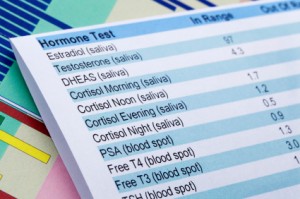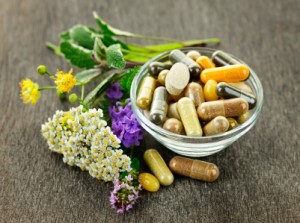Cover the Basics
Hormonal Balance
Cervical Mucous
Other Health Problems
Stress
Additional Testing
Charting & Timing Sex
Natural Therapy Plan
Summary
Unexplained infertility is a term we hear a lot in the reproductive world. Basically, it is the term used when there is no found cause for infertility. Usually a couple has gone through all of the testing available and everything comes back clear. This is good news, but can be so frustrating if you have not gotten pregnant yet. In the case of unexplained infertility, it can be hard to figure out what to do next. A diagnosis of unexplained infertility is given to about 25% of couples with infertility.
Unexplained Infertility:
Cover the Basics
Sometimes it could be as simple as a nutritional deficiency, low cervical mucous, inaccurate timing of sexual intercourse, a pre-existing health issue, or it may be that you need to explore options for more in-depth testing. It is important to cover all the basics, including additional testing that may need to take place. We are going to cover key areas that need to be addressed; some areas may or may not apply to you, but some may have not been taken into consideration when you were given your diagnosis.
Approximately a quarter of all consultations we do involve couples who are given a diagnosis of unexplained infertility, yet they also have other health-related conditions, may have poor dietary and lifestyle habits, and many even have fertility issues that directly impact reproductive health. If you have been diagnosed with a fertility issue such as endometriosis, uterine fibroids, ovarian cysts, etc., those issues may be what is causing your infertility struggles. It is very important to address those issues individually, prior to trying to conceive.
Hormonal Balance

If the hormones are not balanced or the menstrual cycle is off, pregnancy cannot occur. If pregnancy does occur, the risk of miscarriage increases. This is important for the male partner as well. Men can have a hormonal imbalance as well, which may contribute to difficulties in becoming pregnant due to poor sperm health or other health related issues.
Women
Menstrual cycle irregularities may be a sign of hormonal imbalance, or other more serious fertility issues. If any of the below hormones are not at the correct levels, the menstrual cycle may become irregular. Hormonal imbalance may cause a variety of other health related issues that can affect quality of life. For example, thinning hair, heart palpitations, low libido, depression, etc.
- Progesterone
- Estrogen
- Follicle Stimulating Hormone (FSH)
- Luteinizing Hormone (LH)
- Androgens for example DHEA, Testosterone
- Thyroid hormones
- Prolactin
Men
The number one hormonal imbalance in men is with the ratio of testosterone vs. estrogen. Other health-related problems may contribute to hormonal imbalance in men. Poor diet and lifestyle choices are the most common reason for hormonal imbalance, low sperm count, and poor sperm health. Common signs of hormonal imbalance in men are low libido, abnormal hair growth, and erectile dysfunction.
The most common hormonal imbalance in men:
- Testosterone
- DHEA
- Prolactin
- Estrogen
Cervical Mucus
Low cervical mucus is one of the simplest yet most important factors to becoming pregnant. If the cervical mucus is scant, nonexistent or too acidic, then the sperm will not be able to make their way to the cervix.
Causes of Low Cervical Mucus
- Not enough water intake each day
- Poor circulation to the reproductive organs; sedentary lifestyle
- Hormonal imbalance may cause changes to the entire menstrual cycle, which may inhibit production of fertile cervical mucus. Both low progesterone and estrogen levels may cause low cervical mucous production.
- Fertility medications containing hormones can alter fertile cervical mucus production
- Cervical fibroid (very rare)
- Loop electrosurgical excision procedure (LEEP) and cryosurgery damage for cervical dysplasia or HPV. These procedures can, in some cases, cause cervical scar tissue damage, which may close off the ducts that secrete the cervical mucus. This is very rare.
There are natural remedies that help the body to produce more, sperm-friendly cervical mucus as well as sperm-friendly lubricants.
Other Health-Related Factors and Problems that Affect Both Women’s and Men’s Fertility
Other health-related problems may cause hormonal imbalance, poor egg health, low ovarian reserve, or poor/abnormal immune response, which may affect conception. Many times, doctors may overlook these other health issues or not link them to a couple’s fertility troubles. If you have any of the below health issues, it is important to first address those problems, because problems with any of the below may directly impact your ability to conceive.
- Thyroid issues
- Poor Adrenal Health
- Very low body weight
- Obesity
- Diabetes
- Autoimmune disease
- Cancer (chemotherapy and radiation may cause Premature Ovarian Failure or low sperm count and health)
- Injury or trauma to reproductive organs, or one of the endocrine glands
- Smoking
- Alcoholism
- Drug Addiction
- Hypertension
- Long-term use of medications
- Heavy exposure to radiation or other environmental pollution
Note: We have many great articles about most of the above topics, simply do a search in the top right-hand corner of the page!
Stress
You may not know it, but our bodies are equipped to prevent conception from occurring during times of extreme stress. The presence of adrenaline, the hormone that is released by our bodies during stressful times, signals to our body that conditions are not ideal for conception. Adrenaline inhibits us from utilizing the hormone progesterone, which is essential for fertility. It also causes the pituitary gland to release higher levels of prolactin, which may also contribute to fertility issues that prevent conception from occurring. High stress levels can impact fertility for both female and male partners.
Recent research tells us that stress boosts levels of stress hormones such as adrenaline, catecholamines, and cortisol, which can inhibit the release of the body’s main hormone, GnRH (gonadotropin releasing hormone), which is responsible for the release of sex hormones. Subsequently, this may suppress ovulation in women, reduce sperm count in men and lower libido in both women and men. GnRH is responsible for the release of luteinizing hormone and follicle stimulating hormone by the pituitary, the suppression of testosterone, estrogens, and sexual behavior.
Chronic stress may cause lack of libido as well as a decrease in general fertility. Learn great tips on stress management here…
Have You Had All the Necessary Testing?
There are a wide range of tests that doctors perform before they diagnose a couple with unexplained infertility, but through the hundreds of consultations we have done, most couples have not had complete tests performed. Be sure you get the following hormones tested.

Full hormone panel including:
- Progesterone
- Estradiol
- Follicle Stimulating Hormone (FSH)
- Luteinizing Hormone (LH)
- Androgens (ex: testosterone/DHEA)
- Thyroid hormone levels
- Prolactin levels
- Homocysteine levels
- Immunological markers
It is very important for both couples to be tested. Many times, the female partner will be given an unexplained infertility diagnosis, but her male partner has not had any testing performed. Male partners need to be tested as well!
Who is in Need of Immunological Fertility Testing?
People with the following indications may want to consider getting tested by a Reproductive Immunologist. A Reproductive Immunologist differs from a Reproductive Endocrinologist, which most couples are referred to when fertility issues are not determined by an OB GYN or other doctor. Reproductive Immunologists have the training and skills to determine if there is in fact an immunological response gone awry that is causing difficulty in getting pregnant or carrying to full term.
- Two or more miscarriages after the age of 35
- Two IVF failures after the age of 35
- 3 miscarriages before the age of 35
- 1 failed IVF before the age of 35
- Poor egg production from a stimulated cycle (6 eggs or less)
- Blighted ovum
- Pre-existing immune problems (Lupus, Rheumatoid Arthritis, MS)
- Unexplained Infertility diagnosis
- Previous pregnancies showing retarded fetal growth
- One healthy pregnancy with all subsequent pregnancies ending in miscarriage
- Endometriosis, especially stage 1 & 2
- Cold and flu-like symptoms, sore throat noted regularly after ovulation, IUI, or IVF transfer
- Family history of immune disorders, either side of the family
Learn to Chart Your Most Fertile Times and Time Sexual Intercourse Correctly

Be sure you are timing sexual intercourse right. It may be that you are missing your window of opportunity a.k.a. your most fertile time! Could it really be as simple as inaccurate timing? Yes!
According to a recent study, researchers at Monash University in Melbourne, Australia, polled 204 women who were enrolled for assisted reproductive technology (ART). Only 13 percent of the women could correctly answer which days of their menstrual cycle they were most fertile, but 68 percent believed they had timed sexual intercourse correctly.
Kerry Hampton, who lead the study said, “This study found a majority of the women seeking fertility treatment had insufficient knowledge of when to time intercourse to optimize natural conception…Accurately timed intercourse on fertile days of the menstrual cycle may reduce the time it takes a couple to get pregnant, helping some to avoid unnecessary ART treatment.”
You have a 6-day window to get pregnant, with only 2 peak days. So, begin trying to conceive 3 days prior to ovulation, the day of ovulation, and 2 days after that. If your male partner has low sperm count or poor sperm health, try to have sex only the day of ovulation. Abstaining from sexual intercourse for the days prior to ovulation will help to build up his sperm count.
Most women ovulate 2 weeks before menstruation begins. Charting helps you to know if and when you may be ovulating, which will help you to know when to try to conceive.
Learn different methods of fertility charting here…
Natural Options for Unexplained Infertility
Doctors often jump to aggressive fertility medications or give the couple the option of IVF if they are not able to conceive on their own naturally. It seems like there should be a better way, right? So if you have been diagnosed with infertility for unknown reasons, what should you do? Let’s start by taking a good look at daily lifestyle and eating habits and then what we can do naturally to prepare for pregnancy.
The great thing about herbs and natural therapies is that the focus is on bringing the body back into balance. With unexplained infertility, there are a few areas you can look into. A simple program to follow is outlined below.
1. Eat a Nutritious Nutrient-Dense Whole Foods Diet
Nutritional Status: Eat a Fertility Diet

Diet is the most important way to support fertility health. What you put into your body and what you avoid are the foundation for cellular health; this includes the cells that make the egg and sperm. We are what we eat. Nutritional deficiencies contribute to almost all fertility issues.
Having a nutritional deficiency can cause the menstrual cycle to become imbalanced, may cause a lack of beneficial hormones to be produced, contribute to poor sperm count and health or cause the body to lack overall health. For example, iron is necessary for ovulation. Calcium is vital to healthy menstruation. Folic acid is required prior to conception to prevent birth defects in the baby and Vitamin C is essential for sperm health.
Changing the diet should always be the first thing anyone with unexplained infertility focuses on. Keep a journal of everything you eat a day; what areas are lacking?
So, what does eating a whole food diet mean? This means that the foods you consume should be minimally processed, as close to their natural state as possible. Harvard performed a study that showed an 80% decrease in infertility by switching to a fertility diet.
Key diet tips to follow:
Eat Whole Foods– Fresh vegetables, fruits, raw seeds and nuts, whole grains, lean grass-fed free-range organic meats and dairy products (limited).
Examples of Whole Foods:
- Dried beans you make yourself vs. canned beans
- Homemade organic leftover meat vs. deli meats
- Raw, lightly steamed, or lightly sautéed veggies/fruit vs. canned, also, frozen is a better option than canned, but raw is still best
- Raw dairy products vs. pasteurized and homogenized dairy products
- Fresh vegetable/fruit juices vs. concentrated and pasteurized juice
- Whole grains vs. pastas and breads
Take a whole food multivitamin. This can help to ensure you are getting all the proper nutrients needed daily! This means both partners; men need to take a multivitamin just as much as a woman does!
Avoid anti-nutrients– Processed foods abound. Most things in the grocery store that come in a box are highly processed and contain preservatives, dyes, and fillers. Some of these anti-nutrients may actually harm fertility health because they disrupt hormonal balance.
Drink clean water– Drink filtered water; try to avoid tap water. Be sure you are drinking at least 8 full glasses of water. This will not only keep you hydrated, but will help you to flush toxins from the body daily.
Learn the full details of eating a Natural Fertility Diet here…
2. Lifestyle Management
Address Stress!
Take a look at both partners’ stress levels. If you have high stress, there is a possibility that this may be hindering conception efforts for multiple reasons. The body is designed to prevent conception from occurring during times of high stress. High stress impacts hormone levels, sperm and egg health, as well as libido. Work to reduce stress levels. Try meditation, calming herbs, daily exercise, etc.
Exercise
Get your body moving! Exercise is extremely important for a variety of reasons. Regular exercise strengthens the muscles, builds stamina, may increase flexibility, increases circulation, keeps stress, depression and anxiety at bay, and promotes regular detoxification of excess hormones and toxins in the body. It is important to exercise for at least 30 minutes a day, 5 times a week. Make sure that the exercise you choose to do promotes sweat. Sweating is not only the body’s way to cool itself off, it is its way to naturally detoxify daily. All of this is very important for healthy hormonal balance and circulation to the reproductive organs. Regular exercise also is beneficial for preparing the body for the hard work of childbirth.
Cut out bad habits!
Consider daily habits you have that are not so healthy. This could be smoking, drinking alcohol regularly, high caffeine or sugar intake. All of these are known to directly negatively impact fertility for both men and women.
Fertility Cleansing
Beginning your natural fertility plan by choosing to do a Fertility Cleanse may help to reduce the impacts of bad lifestyle choices and prepare the body for healthy conception. Twice-yearly Fertility Cleansing for both the female and male partners may greatly support hormonal balance while promoting natural detoxification of environmental toxins.
3. Consider following Herbal and Nutritional Supplement Program
Fertility Herbs

Fertility Herbs are a great way to bring about healthy healing and change in the body. There are many supportive herbs for pregnancy preparation and supporting men’s fertility health. Some herbs are considered fertility superfoods, which boost nutrition while supporting endocrine system function. Other herbs prepare the uterus for pregnancy. Some aid in menstrual cycle regulation and stress support and some have been shown to increase sperm health.
Once the body is cleansed and ready for trying to conceive you may want to add pregnancy preparation herbs to your mix. There are specific herbs that help prepare the body for healthy conception, promote ovulation, and keep the hormones balanced. My favorite herbal blend for this is FertiliCare Phase 1 & 2 for women. Here are some key herbs in this blend and their beneficial actions:
Tribulus(Tribulus terrestris)
Rehmannia (Rehmannia glutinosa): Rehmannia root is effective at reducing uterine inflammation and spasm. It is also a nourishing blood tonic, important for a healthy menstrual cycle. Rehmannia has been used traditionally for thousands of years in TCM to improve liver function and health, which in turn helps with hormonal balance.
Vitex, Chaste Tree Berry (Vitex agnus-castus): Vitex supports hormonal balance in the body by having an effect on the hypothalamic-pituitary-ovarian axis (hormonal feedback loop). Vitex has been found to help normalize ovulation.
Dong Quai (Angelica sinensis): A wonderful reproductive toner which increases circulation to the uterus, ovaries, and fallopian tubes. This is one of the best herbs for supporting uterine health. Dong Quai is an effective aid for regulating hormonal control, promoting a healthy menstrual cycle.
Maca (Lepidium meyenii): Maca is a nourishing food for the endocrine system, aiding the pituitary, adrenal, and thyroid glands (all involved in hormonal balance). Maca may help to increase progesterone levels, which are essential to carrying a healthy pregnancy.
Supportive Herbs for Male Fertility
American Ginseng
(Panax quinquefolius)
Fo-ti, also known as Ho Shou Wu or He Shou Wu, root (Polygonum multiflorum): Traditionally used for men who have low libido, low sperm count, erectile dysfunction and poor sperm motility, Fo-ti, supports fertility longevity.
Goji berry, dried fruit (Lycium barbarum, L.chinense): Goji berries protect sperm from hyperthermia (overheating), increase hormone levels, and improve sperm quantity and quality through their high antioxidant content. They also work to support hormonal balance through improved liver function and are extremely nutritious as well.
Maca root (Lepidium meyenii): Men who use maca have been seen to have an increased libido and healthy sperm, showing an increase in seminal volume, sperm count per ejaculate, and sperm motility.
Milk Thistle seed (Silybum marianum): Milk thistle seed is one of the best plants for liver health. Liver health is vital for hormonal balance. The liver helps to filter toxins from the body, including excess hormones; this in turn supports hormonal balance.
Seaweed (variety of species): Seaweed is extremely high in vitamins and minerals, including iodine, which is necessary for proper thyroid function. Additionally, it is high in fiber for improved estrogen metabolism.
Tribulus, aerial parts and fruit (Tribulus terrestris): Tribulus has been shown to be effective in aiding sex hormone production, increasing LH and testosterone in men, and may help to increase sperm count, motility and health.
Learn about a variety of different herbs that support healthy fertility here…
Antioxidants
Antioxidants are one of the most important components to having healthy fertility that every woman and man needs to focus on. Antioxidants are a family of vitamins, minerals, and other nutrients that help to protect the body from the damage caused by free radicals. Free radicals are unstable molecules that can damage cell structures. Antioxidants are one of the first lines of defense we have for protecting egg and sperm health!
Omega Essential Fatty Acids
EFA’s aid the body in balancing weight, support body system function, and create a healthy environment for conception. EFA’s have been shown to support hormonal production and balance in both men and women.
A sample program for couples experiencing unexplained infertility:
Women
Month One: Fertility Diet, Fertility Cleanse, Prenatal multivitamin, Omega Fatty Acid, Antioxidants
Month Two+: Fertility Diet, FertiliCare Phase 1 & 2 herbal blend, Prenatal multivitamin, Omega Fatty Acid, Antioxidants
Men
Month One: Fertility Diet, Male Fertility Cleanse, Men’s Multivitamin, Omega Fatty Acid, Antioxidants
Month Two+: Fertility Diet, Men’s Multivitamin, Omega Fatty Acid, Antioxidants, Supportive Herbs
Additional nutrients that you may want to add to this sample program:
Systemic Enzyme Therapy: This is helpful for situations of autoimmune infertility, where the body attacks and rejects the embryo or the sperm. Systemic Enzyme Therapy is also helpful if scar tissue or stagnation may be present. Examples of stagnation are conditions such as endometriosis, PCOS, or blocked tubes.
Summary
When facing unexplained infertility, it is important to cover the basics first: hormonal balance, cervical mucus, health problems, stress levels, nutritional status, and lifestyle habits. Do you think you may need additional testing? If so, that needs to be addressed as well. Be sure you are timing sex correctly and be sure you learn to chart your cycle so you know exactly when your most fertile times are. Eat well. Reduce stress. Exercise. Cut out bad habits. Consider supportive herbs and supplements.
- LiveScience Staff. (9/6/2012). When Can You Get Pregnant? Many Women Don’t Know, Study Claims. Huff Post Women. Retrieved from: http://www.huffingtonpost.com/2012/09/06/when-can-you-get-pregnant-fertility-calendar-conception_n_1861006.html
- Braga, D.P.D.A.F., Halpern, G., Rita de Cássia, S.F., Setti, A.S., Iaconelli, A., & Borges, E. (2012). Food intake and social habits in male patients and its relationship to intracytoplasmic sperm injection outcomes. Fertility and sterility, 97(1), 53-59. Retrieved online from: http://www.fertstert.org/article/S0015-0282%2811%2902677-X/abstract
- Romm, A.(2010). Botanical Medicine for Women’s Health. St. Louis, Missouri: Churchill Livingstone.
- Winston, D. Maimes, Steven. (2007). Adaptogens Herbs for Strength, Stamina, and Stress Relief. Rochester, Vermont: Healing Arts Press.
- Barton-Schuster, D. (n.d.). Immune Infertility: Natural Options for Immunological Fertility Issues. Retrieved online from: http://natural-fertility-info.com/immune-infertility.html





